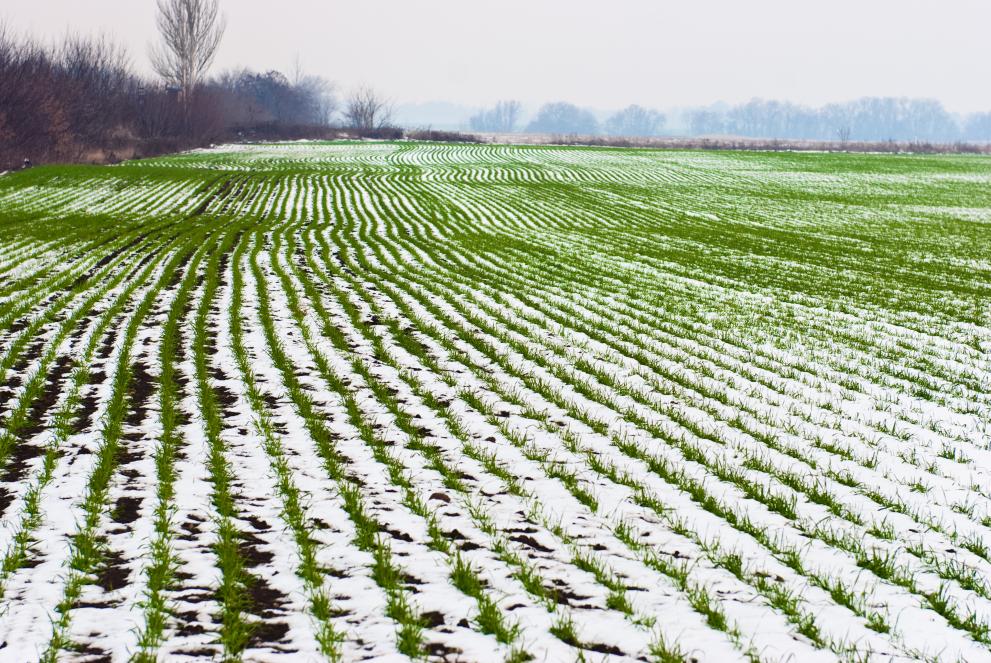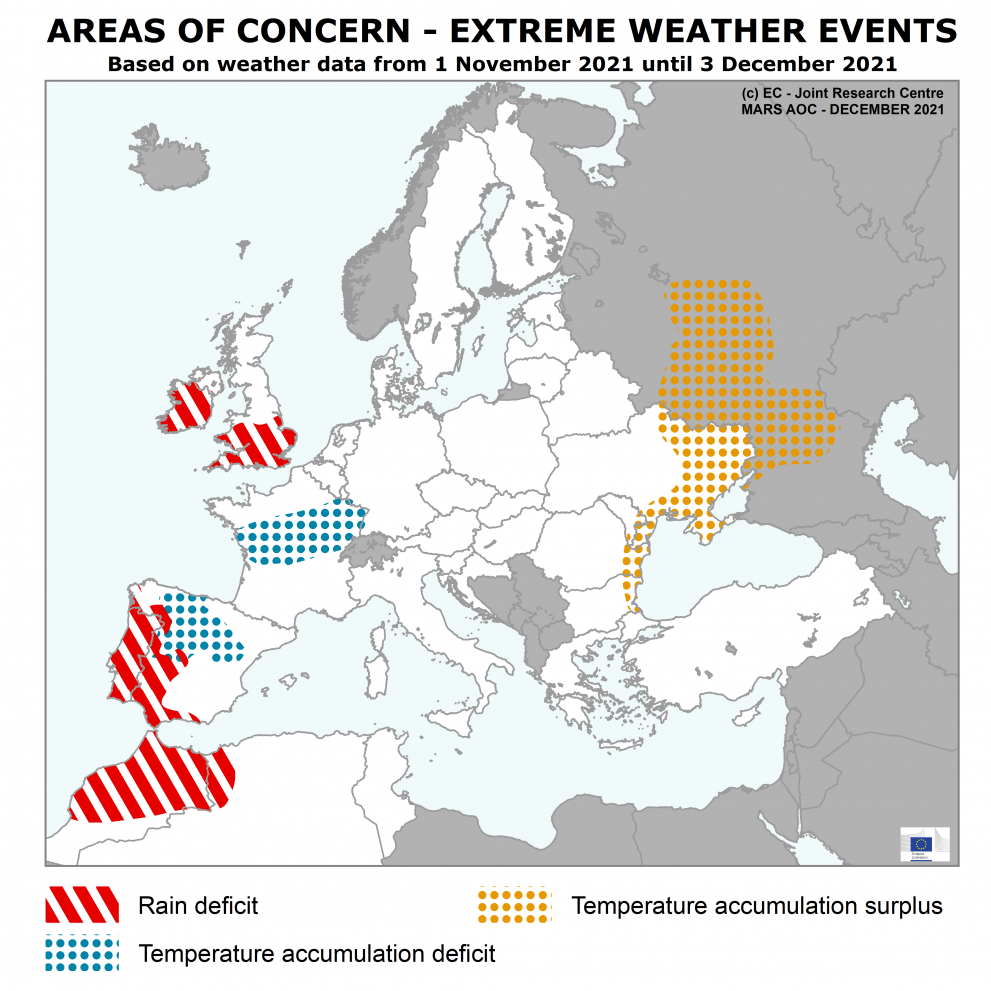
According to the December issue of the JRC MARS Bulletin - Crop monitoring in Europe, which was published today, continued fair autumn weather in most parts of Europe allowed farmers to conduct field operations where needed and sustained adequate development of the newly sown crops. However, the build-up of frost tolerance has been weak in most parts of central, eastern and south-eastern Europe, particularly in the Black Sea region.
In northern and central Europe, above-average temperatures and near-seasonal precipitation in November have been favourable for crop emergence and early development.
In western Europe, particularly in France, the prevalence of below-average temperatures since early October hampered the early development of winter wheat and only a few fields entered the tillering stage.
In south-eastern Europe, temperatures dropped in late November and are expected to have slowed the development of winter cereals, which in part of this region (Romania, Bulgaria, Ukraine) was already delayed due to unfavourable conditions around sowing.
Frost tolerance concerns
Crop model simulations indicate that there has been no frost damage to winter cereals so far. However, the build-up of frost tolerance (called hardening) is weaker than usual in most parts of central, eastern and south-eastern Europe, particularly in the Black Sea region.
Areas where the development of winter cereals is delayed are likely to be even more vulnerable to frost damage.
Although frost tolerance is expected to increase with the forecast colder temperatures, the current hardening status could expose winter cereals to frost damage in the event of severe cold spells in the weeks to come.
Difficult start for winter crops in Morocco
Marked rain deficits in the British Isles and the Iberian Peninsula had no negative impact on crops. However, Morocco has faced a difficult start to the winter-crops season, as autumn rains were scarce and winter crops are clearly delayed.

Further information
JRC MARS Bulletin - Crop monitoring in Europe - December 2021 - Vol. 29 No 12
JRC MARS (Monitoring Agricultural Resources) Bulletins
The latest information about global agricultural production hotspots for countries with food insecurity risks is available on the JRC’s ASAP (Anomaly hot Spots of Agricultural Production) site.
Related Content
JRC MARS Bulletin - Crop monitoring in Europe - December 2021 - Vol. 29 No 12
Details
- Publication date
- 13 December 2021
